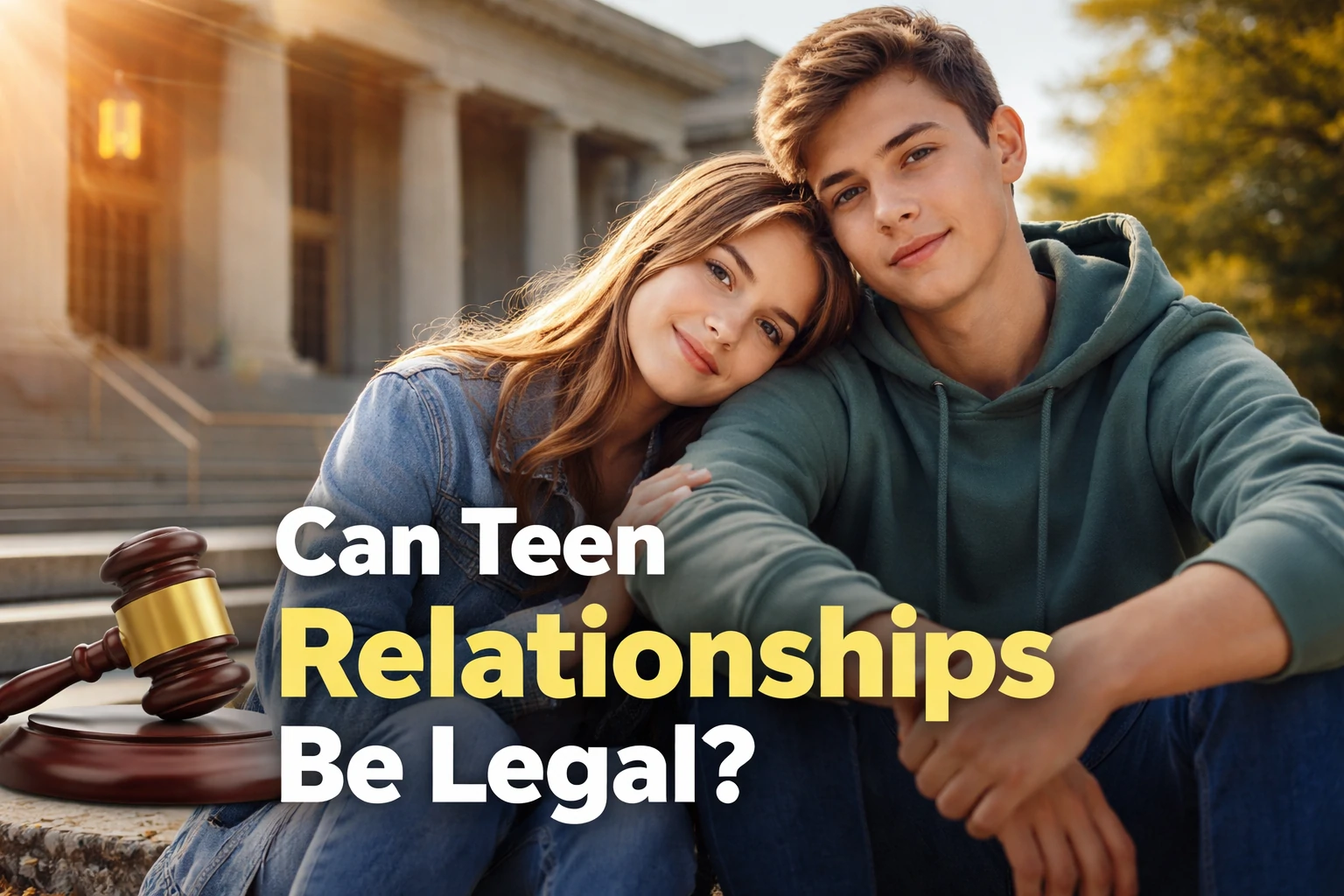Teenagers sometimes make poor choices. They also enter relationships that bring legal risk. Many states now have rules that try to stay fair. Illinois is one of them. The state passed a law to protect teens who are close in age and agree to be together.
This rule is called the “Romeo and Juliet law.” It does not allow teens to ignore age-of-consent laws. It gives protection in rare cases where the age gap is small. The law helps when one teen is over the legal age and the other is not.
Without this law, even a small age gap can bring criminal charges. That can lead to sex offense labels. It can block job options, school paths, and future plans. The Romeo and Juliet law tries to stop that when both teens agree to the relationship.
This article explains how the Illinois Romeo and Juliet law works. It shows who it protects, what the limits are, and what every parent and teen should understand.
Age of Consent in Illinois
In Illinois, the legal age of consent is 17. A person must be at least 17 to agree to sex with someone who also meets the legal age. If one person is younger, the older one can face serious charges. The law does not change, even if both agree to the relationship.
These cases are more common than many believe. A 17-year-old might date a 15-year-old. An 18-year-old might care deeply for someone who is 16. The bond may feel strong. But the law does not care about emotions. It only follows strict age rules.
Judges also look at how the relationship started. They ask if both teens made the choice without pressure. They check for honesty and fairness. That is where the Romeo and Juliet law helps. It gives some protection when both teens are close in age and both agree.
What the Romeo and Juliet Law Allows
Illinois law gives limited protection to teens who are close in age. The younger teen must be at least 13. The older one must not be more than five years older. If both meet this rule, the law might apply. It helps reduce harsh penalties in teen relationships.
This does not mean the older teen is always safe. Prosecutors review each case on its own. They check for clear consent and emotional maturity. They also look for signs of pressure or harm. If the relationship seems unsafe, the law may not protect the older teen.
This law also does not make sex with a minor “legal.” Instead, it offers a possible defense or a reduced penalty. It can keep someone off the sex offender list in certain cases. That makes a big difference in a young person’s future.
Who the Law Does Not Protect
The Romeo and Juliet law does not apply to adults in their twenties or thirties who date teens. It also does not protect someone who uses force, tricks, or threats. If the older person holds power over the younger person, like a teacher, coach, or boss, then the law will not help.
The law only covers close-in-age relationships where both people agree to the contact. Anything that looks like grooming, abuse, or manipulation falls outside this rule.
In addition, the law does not protect those with past sex crime records. If the older teen already has a criminal past, the court may refuse to apply the Romeo and Juliet rule.
Understanding the Law’s Limits
This law sounds simple but comes with limits. It only applies in certain criminal charges. For example, it may offer protection in cases of criminal sexual abuse. But it will not cover child pornography charges, even if both teens took photos willingly.
The law also cannot erase past convictions. If a teen already faced charges and pled guilty, this rule will not undo that outcome. However, if the case is still open, the defense can raise the Romeo and Juliet law in court.
Another key point is that the law does not stop the police from arresting someone. Officers can still investigate, press charges, or question teens. The law becomes helpful once the case reaches court. That is when a lawyer can argue for lighter penalties under the close-in-age rule.
Legal Help Is Still Important
Even if a couple falls under the Romeo and Juliet law, legal help is still important. Each case brings risk. A mistake in how the defense is presented can lead to jail time or a sex offense label.
Parents should act fast if they learn their teen is part of such a case. An experienced lawyer can explain the law and protect the teen’s future. Teens often do not understand the full legal risk of their actions. A parent or guardian must guide them.
Courts will look at phone records, photos, social media posts, and texts. They will ask hard questions. Teens must avoid lying, deleting evidence, or acting without a lawyer’s advice.
Protecting Teens Through Awareness
Many young people have no idea these laws exist. They follow feelings, not court rules. Parents and schools must teach them early. Knowing the law can prevent arrests, charges, and ruined futures.
Teens need to understand that consent is not just about a “yes.” It also includes legal age, maturity, and power. Even if both people say yes, the law may still treat the older teen as a criminal. That truth may seem unfair, but it protects those who are not yet mature.
A short talk today can prevent a lifetime of regret. Parents must not wait until it’s too late.
Illinois Law vs. Other States
Not every state has a Romeo and Juliet law. Some have no protection for close-in-age teens. Others use stricter rules. Illinois stands in the middle. It tries to protect young people without giving up on safety.
Some states only allow a two-year age gap. Others let teens as young as 14 agree to sex with someone up to 18. Illinois allows a five-year gap, but still uses tight rules. This gives some space without opening the door to abuse.
Lawmakers in Illinois want to protect teens from bad choices, but also from unfair punishment. This law is one step in that effort.
Conclusion
Teen relationships often start with real emotions. But once the law steps in, everything can change fast. The Illinois Romeo and Juliet law gives limited protection when teens are close in age and both agree to the relationship.
This law does not make sex with minors legal. It does not excuse abuse or power over another person. It only works in certain cases to reduce harm from a mistake.
Parents need to stay aware. Teens should know the risks. Legal help matters when charges are possible. One bad choice should not destroy a future. This law helps prevent that, but only when used with care.
Related Post: Colorado Romeo and Juliet Law: What You Must Know
Common Questions Answered
Q. What age gap does the Illinois Romeo and Juliet law allow?
The law allows a maximum five-year age difference between the teens. The younger person must be at least 13 years old.
Q. Can the Romeo and Juliet law prevent someone from going to jail?
In some cases, it can help avoid jail. The court may reduce the charge or punishment. But this depends on facts, consent, and other laws involved.
Q. Does this law apply to photos or videos shared between teens?
Q. Can a 20-year-old date a 15-year-old under this law?
Not in most cases. That age gap is too large under Illinois law. The Romeo and Juliet rule stops working when the difference crosses five years.
Q. Is the law the same in every state?




